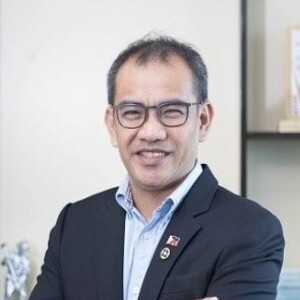
The national government, as well as the local and regional agencies, are the first responders in crises, as in the COVID-19 outbreak. They play an essential role in guaranteeing the timely roll out of public services to the most vulnerable populations living in informal settlements or slums within and around cities as well as older persons, women, children, persons with disabilities, migrants, and refugees.
Technology has proved a useful and necessary tool to help ensure that local and regional authorities on the frontline of the emergency continue to provide essential public services during the pandemic. As coronavirus continues to spread around the world, governments have put in place important restrictions on the movement of people, the functioning of services, and rules on physical distancing. Within this context, technology can have a profound effect on citizen’s daily lives and ensure them access to health services, access to information and communication with competent authorities.

OpenGov Asia had the opportunity to speak exclusively to Dr Enrico Paringit, Executive Director, Department of Science and Technology Philippine Council for Industry, Energy, and Emerging Technology Research and Development (DOST PCIEERD). The discussion helped gain important insights into several tech projects intended to address the ongoing effects of the pandemic in the country.
To gain some perspective, PCIEERD is one of the three sectoral planning councils of the Department of Science and Technology (DOST). It has the mandate to serve as the central agency in the formulation of policies, plans and programmes as well as in the implementation of strategies in the industry, energy and emerging technology sectors through the following S&T programmes:
- Support for Research and Development
- Human Resource and Institution Development
- S&T Information Dissemination and Promotion
- Support for Technology Transfer and Commercialisation
- Policy Development and Advocacy
Dr Enrico confirmed that the pandemic was not the only reason why their council shifted to the digital space. Well before the COVID-19 pandemic, the council was already shifting to a paperless environment, where the process permitted such a transition. Where possible, it had been made mandatory that internal and external office transactions be done through online platforms.
Hence, when the pandemic hit last year, they are well along the way on their digital transformation journey. The council also continues to improve on its processes involving technology to deliver services and accomplish projects more efficiently amid the pandemic.
When COVID-19 hit, Enrico explained, the council had to tap into technological interventions that could be utilised during the pandemic. This adjustment to the pandemic is divided into two parts. One is creating an avenue for support to address the COVID-19 crisis. The other was creating a coping strategy within the organisation.
Among these coping mechanisms is STRAP – the Science and Technology Resilience against COVID-19 Programme. STRAP aims to determine immediate technologies that could be rolled out from the agency to address the pandemic and adapt to the new normal.
The initial area of concern was the country’s problematic transportation system. A report said that the national public transport must adapt to a new normal in the wake of the coronavirus disease pandemic and adopt technologies that would make it greener and more resilient to future disasters.
This prompted the council’s researchers and partners to conduct studies on transportation amid the crisis. The research and development done by the council further helped the national government in regulating the inflow and outflow of people during lockdowns and quarantines. Such restrictions have been put in place worldwide and help governments control the spread of the virus.
The council’s adoption of digital applications for data integration is also vital in terms of their pandemic response efforts, acknowledged Dr Enrico. One initiative that benefited from the database integration is the country’s Social Amelioration Programme through which the government provides a PHP5,000 to PHP8,000 monthly cash subsidy to low-income families for two months, depending on the area of residence. The subsidies provide marginalised sectors of society the means to afford basic needs during the pandemic.
The database platform provided the government bodies with tools to conduct their programmes more efficiently while also addressing the need for transparency. The council made sure that the government agencies who are championing the Social Amelioration Programme are well-equipped with sufficient data, tools to monitor the status of the assistance given to citizens and to efficiently deliver messages between agencies who are leading the programme.
Moreover, Dr Enrico and the council also learned to evaluate third-party project proposals that seek to address the crisis. For example, a specimen collection booth with tech for COVID-19 tests was also supported by the council. They helped a local start-up by setting up the booth with a proper tech design to avoid further infections between its users and administrators. At the same time, another startup also deployed 3D printed frames for face shields, which are highly encouraged by the national government amid the pandemic.
For Dr Enrico, “these projects are demonstrations of what technology can do… and we are here to support our researchers and developers in this time of crisis”. He agreed that 2020 was about deceleration and trying to slow down the deterioration of the economic and social grids. Dr Enrico’s exhortation to his researchers, engineers, scientists, and partners is that 2021 should be the year of acceleration.
Everyone must put in the effort to help the economy back on its feet while also striving to improve it. Researchers and agencies must continue to find technological interventions and discoveries that accelerate key government processes. Simultaneously, the same government must internalise the lessons from combatting the pandemic for over a year. The new normal demands a paradigm shift, and the public sector cannot afford to operate as it did pre-COVID-19.
In the end, Dr Enrico and the council believe that technologies must be pushed to the limit in terms of rolling out public services. This is more pertinent now when the Philippines is experiencing the highest recorded number of COVID-19 positive cases since the onset of the worldwide pandemic.
The Philippines should increase digital adoption by the government, businesses, and citizens to help the country adapt to the post-COVID-19 world and achieve its vision of becoming a society free of poverty by 2040.
Moreover, the government must take an active role in fostering policies that reduce the digital divide and create a more conducive environment for the digital economy to flourish. Fostering innovation in the country will be critical in supporting its digital economy.
For Dr Enrico, the pandemic is the perfect opportunity for governments to weigh in different technological interventions and by now, they should know how certain measures will lead to certain consequences. This is also a time for the same governing bodies to make a calibration of methods to build an optimal path towards the ultimate goal of overcoming COVID-19.
















